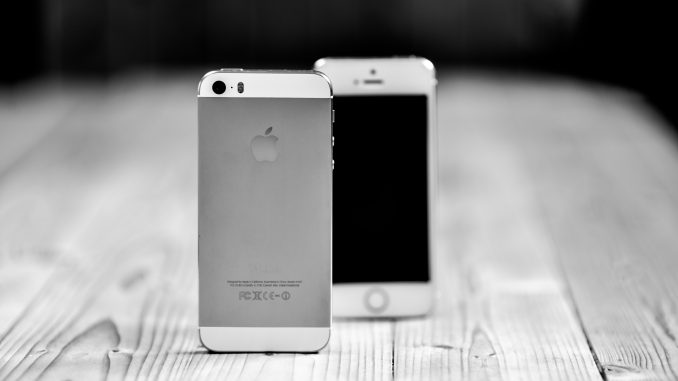
There are about 1 billion Apple devices that are active around the world. The phone features are engaging that keeps the crowd almost into the phone be it for the personal use or for the official purpose. The Apple iPhone has emerged as the wonderful development in the history of mobile technology. The Apple Incorporation has used the walled-garden approach to protect the iPhone, iPads and the iPods from the cyber attacks. Because iPhone security is necessary.
Seeing that, there have been a large number of known malware that includes spyware, adware, trojans,viruses, worms and similar tools that have targeted iOS. The ones that attacked the previous versions of iOS can not affect the latest iOS phones.
Some of the malware is just annoying while some others are deadly harmful. If you don’t want to get yourself in such kind of a situation, I would highly recommend you to know as much as it is needed about cyber security tips.
What is Malware?
Firstly, malware can be defined as the malicious software that forcibly gains access to, gathers the data from, or disrupts the normal operation of a device often with the damaging results.
The behavior of the malware depends completely on the severity of the malware infection. A malware infection can lead you to pay a ransom to get your files back. Another type of the infection leads the attacker to your financial credentials looking for the username,passwords, and credit card/debit card details.
Is your iOS secured and safe from the Malware attack?
The Apple Incorporation has made a number of architectural designs and fundamental decisions to keep their system secure and safe. It is rare to get a Malware on the iOS platform.
![]()
Different Types of Malware can be break your iPhone Security Wall:
There are a different types of malware attacks that can take place in your iOS platform based mobile devices:
Pop-Ads that attached to Safari much like a Windows Adware virus.
Ads that may interfere directly on the applications.
Malicious Apps that will hijack your home page and default search engine.
Phishing Scams that requests you to provide contact details.
The Phishing Scams involves the most common type of malware attack. This scam involves loading pop-up messages on your Safari Browser. It will report some problems and you will be asked to contact Apple Support for help. If you think that your device seriously has problems, you should immediately contact Apple Support.Here are some of the names of the Malware affecting iPhones that includes:
VSearch
Trovi
Conduit
MyBrand
Buca Apps
Search Protect
Downlite
![]()
However, you can remove those Adware Pop-Ups by blocking them through the check box. Some other malware apps that the iPhone, users can encounter are:
Xcode Ghost: The Xcode Ghost can collect information about the devices and then encrypt the data collected. It will then upload all the information to the attacker’s server.
Masque Attack: This is weird and dangerous. This malware duplicates the existing apps on the iPhone users. It will override the banking and the email apps, thereafter steal the financial credentials.
SSL Flaw: SSL is one of the technologies to create secure connections to the website. As the data was unencrypted, it was really easy for the hackers to intercept and read the passwords, bank details, personal information, and other private data.
The Apple’s Walled Garden
With the help of the Apple’s Walled Garden , the Apple has kept a control over their own platform.In case you wish to download any app, it is best advisable to do that from the Apple’s Official App Store. The control extends to sources where users can download the apps.
There are tight security measures to prevent the malware from getting on to the App Store in the first place.
Sandboxing
Each and every application installed on iPhone is separate from each other. Hence, the installed application would be physically unable to remove the essential files. Neither will it allow any unauthorized access except through the authorized API calls.
This is what you can call as Sandboxing where each vital part of the iOS security process is under threat, ensuring that any avenues for the malicious activity are under limitations.
There are many software companies developing the newest and the latest anti-malicious software in the first place. These companies have made the functionality, simple giving users access to easily and quickly scan external files without running into activity delays.
What can you scan with these security software?
The security software checked and loaded on your mobile can check the following:
External Files within your apps.
Files accessed from remote locations like FTP shares and Dropbox.
Files received through the mails.
Likewise, Some researchers have confirmed that the iOS malware can execute several malicious actions like Accidental Data Leakage, Monetary Theft, Corporate Network Access, Data Exfiltration, Operating System Vulnerabilities and Device Surveillance.
The Security company Palo Alto Networks has recently discovered a new kind of malware that is affecting iOS and gave it the name of “Ace Deceiver”. It starts affecting the Personal Computer from where they attack the mobile devices. This is how it can download the malicious software to the mobile devices.

It is identified as the first malware that can attack the factory configured iPhones as against those that would download some apps infected by the unauthorized users. The AceDeciever can infect the phones that have not been even Jailed broken.
In addition, you should know few things more:
If an app asks for more information than usual step out and do not download that app.
Think twice if you use over-the-air network for accessing the company’s data. That is unsafe and you can lose the private and confidential information.
Conclusion
However, If you own an enterprise mobile then you should follow the BYOD policy, i..e Bring Your Own Device to security. The users are well aware of the mobile usage and should constrain themselves from the unidentified links that can put their company’s data at risk. Learn to use your mobile device properly while surfing the web by following the internet security tips.
So, do not always switch to rooting the mobile device. Otherwise, having access to the roots will damage the mobile and information/data. You rather stay calm if you are planning to go for the rooting your device. In the meantime, rooting your phone without any serious reason can be harmful. As a result, you might face some serious trouble in future. However, it’s up to you whether you want to root the device or not. In this case, you need experts advice.
Finally, I hope now you understand everything about iPhone malware attacks and iPhone security issues.
You can also share your thoughts on iPhone security too.
